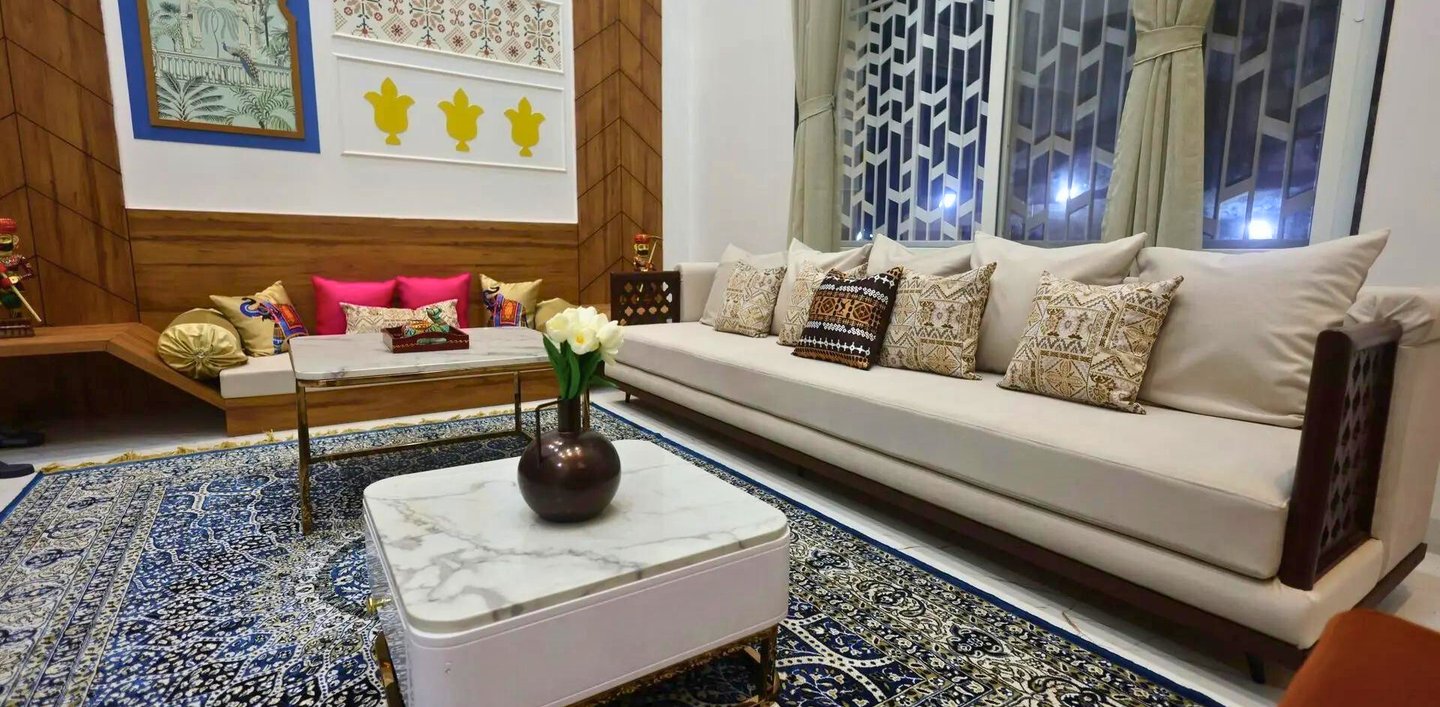Sustainable Interior Design: Creating Eco-Friendly Spaces
Discover the principles of sustainable interior design and how to create eco-friendly spaces that blend beauty with environmental responsibility. This blog emphasizes the importance of eco-friendly materials, natural light, and energy-efficient solutions. Learn how Deepa Bajaj Design Studio incorporates sustainability into every project, crafting stylish spaces that promote a healthier planet.


Sustainable Interior Design: Creating Eco-Friendly Spaces
1. Understanding Sustainable Design
Sustainable interior design focuses on minimizing environmental impact while maximizing comfort and functionality. It involves selecting materials, products, and processes that reduce waste, conserve resources, and promote health and well-being. This approach encompasses everything from the choice of building materials to the use of energy-efficient lighting and appliances.
By incorporating sustainability into your design, you not only contribute to environmental conservation but also create a healthier living or working environment for yourself and others.
2. Choosing Eco-Friendly Materials
One of the fundamental principles of sustainable interior design is the selection of eco-friendly materials. Opting for sustainably sourced, recycled, or biodegradable materials can significantly reduce the ecological footprint of your space. For instance, using reclaimed wood for flooring or furniture not only adds character but also prevents deforestation.
In addition, consider materials with low VOC (volatile organic compounds) emissions to improve indoor air quality. Paints, finishes, and furnishings that are free from harmful chemicals contribute to a healthier living environment.
3. Maximizing Natural Light
Natural light is a vital element of sustainable design that enhances the ambiance of any space while reducing energy consumption. Strategic placement of windows, skylights, and reflective surfaces can maximize natural light, minimizing the need for artificial lighting during the day.
At Deepa Bajaj Design Studio, we focus on designing spaces that incorporate abundant natural light, creating a warm and inviting atmosphere. This not only enhances the aesthetic appeal of the interior but also promotes well-being by connecting occupants with the outdoors.
4. Incorporating Energy-Efficient Solutions
Energy efficiency is a key component of sustainable interior design. Choosing energy-efficient appliances, lighting fixtures, and heating/cooling systems can significantly reduce energy consumption and lower utility bills. For example, LED lighting consumes less energy and lasts longer than traditional bulbs, making it a smart choice for both residential and commercial spaces.
Additionally, consider installing smart home technology that allows for better control of energy usage, contributing to a more sustainable lifestyle.
5. Designing for Longevity
A crucial aspect of sustainable design is creating spaces that are durable and timeless. Choosing high-quality materials and classic design elements ensures that your interior will withstand the test of time, reducing the need for frequent renovations or replacements.
By focusing on durability, you not only enhance the longevity of your space but also contribute to resource conservation by minimizing waste over time.
Conclusion
Sustainable interior design is more than just a trend; it’s a necessary approach for creating spaces that are beautiful, functional, and environmentally friendly. At Deepa Bajaj Design Studio, we are committed to integrating sustainable practices into our design process, ensuring that each project we undertake supports a healthier planet and enhances the well-being of its occupants. By choosing eco-friendly materials, maximizing natural light, and incorporating energy-efficient solutions, you can create a space that reflects your commitment to sustainability while enjoying a comfortable and stylish environment.


